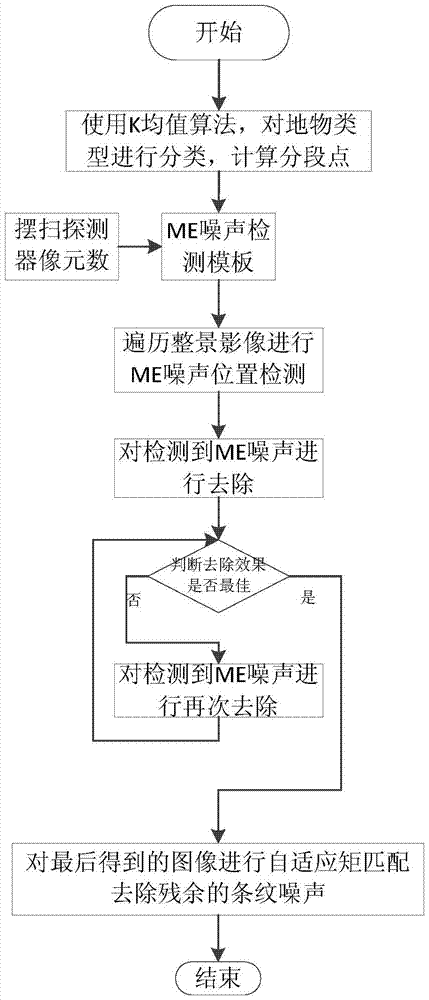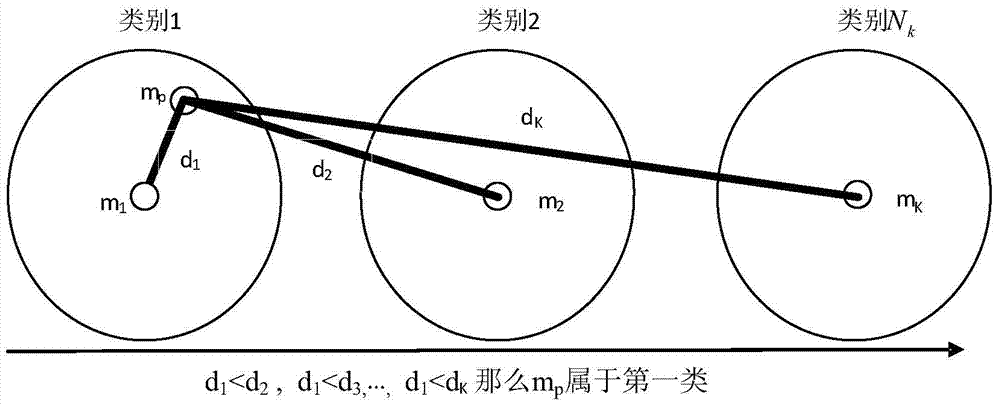A method for removing noise from infrared images based on on-orbit classification statistics
A technology of infrared imagery and classification statistics, which is applied in the field of aerospace remote sensing, can solve the problems of relying on the impulse response function of the remote sensor system, and achieve the effects of ensuring effectiveness, ensuring accuracy, and improving radiation quality
- Summary
- Abstract
- Description
- Claims
- Application Information
AI Technical Summary
Problems solved by technology
Method used
Image
Examples
Embodiment Construction
[0026] Such as figure 1 Shown, be the flow chart diagram of the inventive method, main steps are as follows:
[0027] Step 1: Use the K-means algorithm to classify the ground objects obtained from the satellite in-orbit image according to the gray level difference, so as to obtain the radiance classification interval.
[0028] The K-means clustering algorithm is a kind of partitioning clustering algorithm, which belongs to hard clustering, and finally makes the objective function reach the minimum value. Classify the data objects in the data set according to the initial cluster center and recalculate the cluster center and data object classification. The end of the iterative process indicates that the clustering criterion function has reached convergence.
[0029] Assuming that the original image with ME noise is X, H and L are the length and width of the original image X. The gray quantization information of the image is used as the sample set X(x 1 ,x 2 ,...,x n ), now ...
PUM
 Login to View More
Login to View More Abstract
Description
Claims
Application Information
 Login to View More
Login to View More - Generate Ideas
- Intellectual Property
- Life Sciences
- Materials
- Tech Scout
- Unparalleled Data Quality
- Higher Quality Content
- 60% Fewer Hallucinations
Browse by: Latest US Patents, China's latest patents, Technical Efficacy Thesaurus, Application Domain, Technology Topic, Popular Technical Reports.
© 2025 PatSnap. All rights reserved.Legal|Privacy policy|Modern Slavery Act Transparency Statement|Sitemap|About US| Contact US: help@patsnap.com



